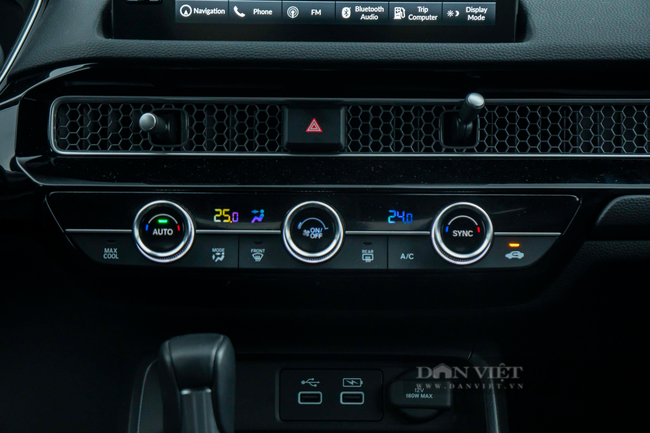In the midst of a scorching heatwave combined with power outages, many have come up with the ‘clever idea’ to turn on their car’s air conditioning to sleep. However, this is extremely dangerous if safety precautions are not taken into account.
In reality, many regard turning on the car’s air conditioning as a good option, especially when experiencing a power outage during a scorching day or after a long drive when one needs a deep sleep to regain energy.
Turning on the air conditioning to sleep is not prohibited but must be done correctly to ensure safety for oneself and others in the vehicle.
Carbon monoxide – the hidden danger, threatening those who sleep in cars

In a confined space filled with machinery details like a car’s interior, taking a brief nap to alleviate fatigue or drowsiness during long drives is understandable. However, extending sleep for several hours in a car is truly perilous. There have been numerous fatalities due to carbon monoxide poisoning from sleeping with the air conditioning on in cars.
When the air conditioning is on and you sleep in the car for several hours, the engine must continue running, emitting carbon monoxide into the environment and surrounding air.
Carbon monoxide, a colorless, odorless toxic gas, is usually produced during the burning of fuels such as coal, wood, gasoline…
Exhaust fumes from cars containing carbon monoxide released into the environment pose no danger to the lives of people nearby. But when concentrated in small, confined spaces, carbon monoxide becomes extremely hazardous and is responsible for causing death in people who sleep in cars (according to research by Vehiclefreak).
Those who die from carbon monoxide poisoning while sleeping in a car with the air conditioning on usually show no symptoms. Meanwhile, sober individuals may experience common symptoms like nausea, dizziness, chest pain, vomiting, headaches, difficulty breathing, confusion, seizures…
Exposure to carbon monoxide for an extended period exacerbates the condition. It is even possible to lose consciousness after continuously inhaling carbon monoxide for two hours in the air.
Furthermore, leaving the air conditioning on for too long while the car is stationary can deplete the fuel or cause the engine to overheat because the cooling system cannot keep up, resulting in the air conditioning ceasing to function. In this situation, individuals in the car who are still deeply asleep may gradually faint due to the cabin running out of oxygen, leading to death.
Essential reminders when using the air conditioning to sleep in a car In life, unavoidable circumstances may force you to choose a car as a shelter to escape heat and sunlight. Nevertheless, to ensure safety for yourself and your loved ones, pay special attention to the following:
Choose a ventilated, shaded, and cool area to park your car. A spacious surrounding environment will help disperse exhaust fumes from the car faster, reducing the accumulation of harmful gases around the vehicle.
Check if the car still has enough fuel (gas, electricity) to operate for an extended period.
Inform family members of your parking location and the fact that you intend to sleep in the car. Set an alarm within short intervals, such as every 15-30-45-60 minutes, to prevent falling asleep in the car for too long.
Prepare essential items such as pillows, blankets, etc., and a small fan to improve air circulation.
If the air conditioning in the car is not turned on, you can slightly open the car windows or the sunroof about 1.5-2.5cm to let fresh air into the vehicle.












